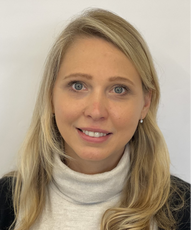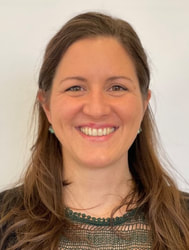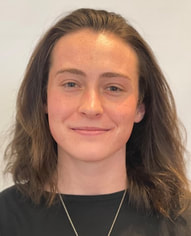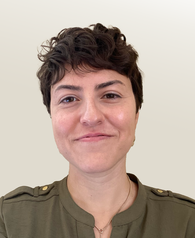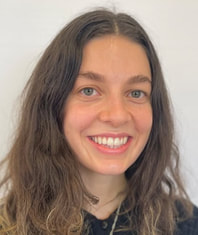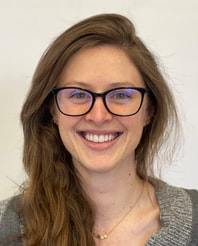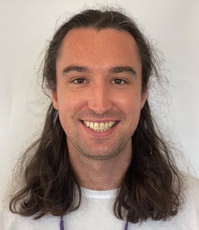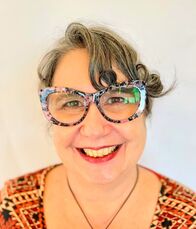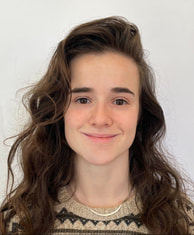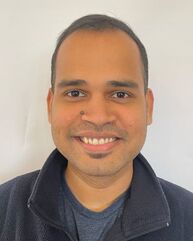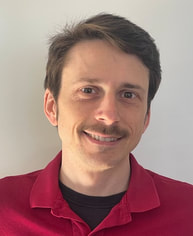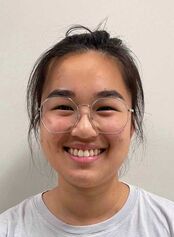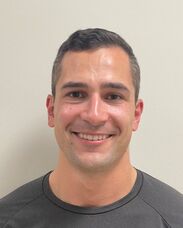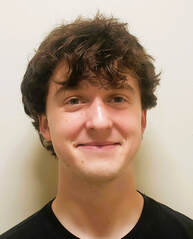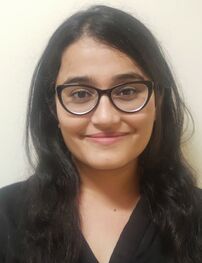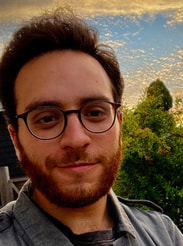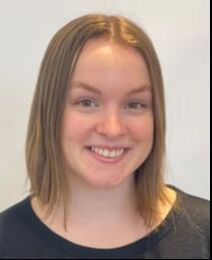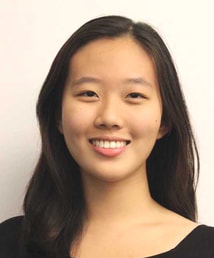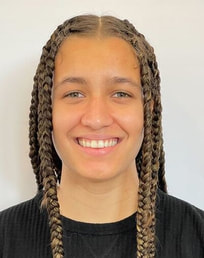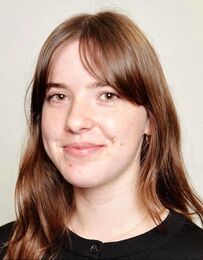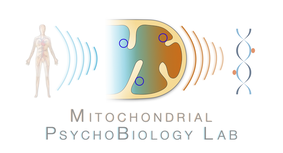Team Members
|
Martin Picard, PhD ⎢ Principal Investigator
Martin is an Associate Professor of Behavioral Medicine in the Departments of Psychiatry and Neurology at Columbia University Irving Medical Center, and co-director of the Science of Health Program at the Mailman School of Public Health. He trained as a physiologist in neuroimmunology, then in aging mitochondrial biology, psychosocial oncology, and systems biology at McGill University. As a postdoc fellow he worked with cellular and animal models of mitochondrial disease with Doug Wallace at the Center for Mitochondrial and Epigenetic Medicine (CMEM), and on stress neuroendocrinology with Bruce McEwen. As director of the Mitochondrial Psychobiology Group, Martin is committed to understanding how energy, mitochondria, and transdisciplinary science can create a bright, health-focused future for medicine. Outside the lab, Martin is passionate about electric cars and renewable energy, and enjoys spending time in nature with family. |
|
Caroline Trumpff, PhD ⎢Assistant Professor
Caroline is an Assistant Professor of Medical Psychology in the Department of Psychiatry. Caroline completed her postdoctoral training as a Herbert H. and Ruth S. Reiner Postdoctoral Research Fellow in the Picard Lab. Caroline received her PhD in psychological sciences from the Université Libre de Bruxelles, Belgium. She completed her doctoral research at the Belgian Scientific Institute of Public Health (Sciensano) where she studied the effects of iodine deficiency during pregnancy on children’s neurodevelopment. Caroline's research aims to understand the interplay of psychological stress exposure and mitochondrial biology as a potential biological pathway linking psychosocial stress to physical and mental health trajectories across the lifespan. Her research has been funded by a NARSAD young investigator award. Outside the lab, Caroline is an avid reader of literature and psychoanalysis, has a passion for the arts, and enjoys travelling and cooking. |
|
Anna Monzel, PhD ⎢Postdoctoral Researcher
Anna completed her BSc in Biology at the University of Bonn in Germany and her MSc in Systems Biology at the University of Luxembourg. She received her PhD in Stem Cell Biology from the University of Luxembourg at the Luxembourg Centre for Systems Biomedicine. In her doctoral work she developed an iPSC-derived human midbrain organoid model, which she used to study the neurodegenerative disorder Parkinson’s disease. Her main scientific interest involves investigating the role of mitochondria in the development of neurological disorders. In particular, she is interested in understanding how health-relevant psychological and metabolic stressors influence mitochondrial behavior and predispose to late-life functional decline. Outside the lab, Anna enjoys cooking, baking, skating and spending time in nature. |
|
Grace Liu, MA ⎢Data manager
Grace is the data manager in the Division of Behavioral Medicine. Grace provides comprehensive data services for our lab and the Division including data collection design, data quality checking, data reporting and data customization utilizing SAS, Excel/VBA, and other analytical packages. She maintains and updates the REDCap software/database for the MiSBIE study. Grace Liu holds a M.A. in Geographical Informational Systems and previous worked as analyst in nonprofit sector. |
|
Jeremy Michelson, PhD ⎢Postdoctoral Researcher
Jeremy earned his Bachelor’s Degree at Tulane University, where he studied the impact of stress and early life experiences on infant development with Dr. Stacy Drury. After graduation, he worked at UCSF Institute for Human Genetics, where he helped manage the Program in Prenatal and Pediatric Genome Sequencing (P3EGS) with PIs Pui-Yan Kwok, Mary Norton, Barbara Koenig, and Neil Risch. Jeremy received his PhD in the Nutritional and Metabolic Biology PhD program at Columbia with the aim of integrating genetic, neuroscientific, and metabolic approaches. His work in the Picard lab focuses on the role of circulating mitochondrial DNA in psychological stress, health, and disease. Outside the lab, Jeremy enjoys cooking, Broadway shows, and evening walks in riverside park with his dog, Harley. |
|
Alex Junker, BSc, MPH ⎢ Graduate Student
Alex earned their bachelor in biology from the University of South Carolina, studying ROS generation during nicotine withdrawal. After graduation, they studied cardiac metabolism at Cleveland Clinic before pursuing their MPH in Sociomedical Sciences at Columbia’s Mailman School. They’re interested in tying social determinants analyses with lab research on bioenergetics. In the lab, Alex performs analyses of sex differences in human mitochondrial biology, and deploys our high-throughput mitochondrial phenotyping platform to profile blood and brain mitochondria in humans. Outside of lab, Alex loves drawing murals, getting lost in parks, and doing comically amateur blacksmithing. |
|
Natalia Bobba-Alves, PhD ⎢ Postdoctoral Researcher
Natalia Bobba-Alves completed her BSc in Human Biology and her MSc in Cellular and Molecular Biology at the Universidad de la República (UdelaR) in Uruguay, carrying out her dissertation research at the Instituto de Investigaciones Biológicas Clemente Estable (IIBCE) and the Institut Pasteur Montevideo (IPMon), respectively. She was then awarded a Fulbright Foreign Grant for Graduate Students that brought her to the PhD program in Nutritional and Metabolic Biology at Columbia University which she has recently completed. Her main scientific interest involves understanding how how stress signaling affects cellular energetics and aging. Outside the lab, Natalia enjoys listening to music and playing the guitar, playing soccer, and practicing yoga, as well as taking long walks around the city. |
|
Catherine Kelly, BA ⎢ Clinical Study Coordinator
Catherine graduated from Kenyon College in 2019 with a BA in Psychology and Dance. After college, Catherine worked in Denver Public Schools as an AmeriCorps service member and as a teaching assistant in an inclusive classroom. Her professional interests include child development, the mind-body connection, and movement research. In the lab, Catherine coordinates the MiSBIE study, through which she works at the interface of the clinical team, our visiting participants, and the wet laboratory where MiSBIE samples are processed and analyzed. Outside the lab, Catherine is a volunteer at Dance for All Bodies, a non-profit that organizes dance classes designed for people with disabilities. |
|
Janell Smith, BSc ⎢ Graduate Student
Janell received her Bachelor of Science in Human Physiology and Neuroscience from University of California San Diego in 2016, and has since focused her research in the field of regenerative medicine. She worked at Harvard University, differentiating human embryonic stem cells into motor neurons and glial cells to study neurodegenerative diseases. She then worked at Regeneron, optimizing a protocol for differentiating induced pluripotent stem cells into inner ear hair cells, to be used as a human model to assess hearing-related therapeutics. Janell is now a graduate student in the Integrated Program in Cellular, Molecular, and Biomedical Studies and her thesis work lies at the intersection of mitochondrial signaling, aging, and psychobiology. In her spare time, Janell enjoys spending time with family and friends, playing video and board games, and relaxing with her two cats. |
|
Hannah Huang, MSc ⎢ Research Worker
Hannah completed her BSc in Anatomy and Cell Biology at McGill University, where she studied biomarker for major depressive disorder and discovered her passion for neuroscience and mental illness. She is currently pursuing her MA in Clinical Psychology at Teachers College, Columbia University. Her long-term goal is to pursue a PhD in neuroscience to study the neurobiology of mental illness, brain-body connection, and psychoneuroimmunology. In the lab, Hannah performs analyses of molecular indices of mitochondrial and immune functioning, aiming to elucidate the association between maternal stress phenotypes and the risk for preterm birth. Outside of the lab, Hannah loves exploring restaurants, visiting museums, and biking along the Hudson River at sunset. |
|
Jack Devine, MSc ⎢ Research Worker
Jack earned his BA in Microbiology and his MSc in Neuroscience from Trinity College Dublin in Ireland. His Masters research project was on the role of reactive astrocytes in Parkinson’s disease and the use of iPSCs to model neurodegenerative disease. His main scientific interests include the biology of the mind and mental health. In the lab, Jack deploys the group's mitochondrial phenotyping platform to measure mitochondrial electron transport chain enzymatic activities in cells and tissues from mice and humans. Outside the lab, Jack enjoys reading books, running and playing tennis. |
|
Vanessa Giardino, BA ⎢ Project Coordinator
Vanessa originally received formal training in the arts & sciences, and now combines several years of experience in finance and science administration at Columbia University and other institutions. As Project Coordinator, Vanessa assists with the administrative and organizational management of the Mitochondrial Psychobiology Laboratory. She works closely with Dr. Picard to support the training and career development of our diverse lab Members, foster a warm and productive environment, and achieve the ambitious long-term goals of the group. Vanessa passionately speaks Italian and relishes learning new things. Outside the lab, she enjoys making jewelry from found objects, reading, cooking, and being at the beach at her house in Italy. |
|
Samantha Leonard, BA ⎢Research Worker
Samantha earned her BA in Psychology from SUNY Geneseo, where she studied the psychopharmacological effects of THC on Long-Evans rat pups and their mothers under the guidance of Dr. Vincent Markowski. After graduation, she became certified as an ABA Technician and worked with young children diagnosed with autism spectrum disorder. She is currently earning her MS in Neuroscience and Education at Teachers College, Columbia University, and plans to pursue a PhD in Behavioral Neuroscience. Her current work in the lab focuses on understanding how mood states, behaviors, gender, and sleep dynamically influence saliva cell-free mitochondrial DNA throughout the day. Outside of the lab, Samantha enjoys snowboarding, attending concerts, and cooking meals for her friends. |
|
Mangesh Kurade, MSc ⎢ Laboratory Manager
Mangesh completed his BSc in Pharmaceutical Sciences from the University of Mumbai, and an MSc in Pharmacology and Toxicology at Long Island University in 2018. His thesis project involved developing animal asthma and pulmonary inflammation models and using novel Angiotensin Type 2 (AT2R) receptor-specific peptides. His previous research experience in the Ferrari Lab at CUIMC involved investigating degenerative mitral, aortic, and bioprosthetic heart valves and the molecular mechanisms that provoke their degradation. As the Mitochondrial Psychobiology Laboratory Manager, Mangesh oversees general lab operations, leads the laboratory processing of the precious MiSBIE study samples, manages the MiSBIE Biobank, and manages the completion of collaborative projects related to mitochondrial health. Outside of lab work, he likes a good game of tennis, long drives, cooking, and playing his guitar. |
|
David Shire , PhD ⎢ Research Scientist
David received his BA in Biology from Boston University and his PhD in Environmental Sciences from Rutgers University - Newark. For his doctoral research, he utilized quantitative proteomic approaches to investigate membrane protein localization and mechanisms of trace metal metabolism in marine phytoplankton. His current research interest is in the origins of cell-free mitochondrial DNA in biofluids and the mechanisms that contribute to its dynamic behavior. In the lab, David deploys the group's high-throughput platform for quantifying circulating mitochondrial DNA in clinical biofluid samples from in-house studies and in materials provided by external collaborators. Outside of the lab, he enjoys distance running, crating digital art, and browsing in used bookstores. |
|
Cynthia Liu BSc ⎢ Research Assistant
Cynthia earned her BA in Molecular and Cell Biology and BS in Nutritional Sciences concurrently at the University of California, Berkeley in 2023. As an undergraduate, she worked with Dr. Rong Wang at UCSF to establish novel mouse models of vascular disease and study primary events of vascular lesion formation in the brain. In the lab, Cynthia focuses on quantifying mitochondrial OxPhos enzyme activities and mtDNA content in different regions of the human brain. The MitoBrain ROSMAP project she leads will relate key aspects of mitochondrial biology to cognitive, psychosocial, and other aspects of the human experience. Outside of the lab, she enjoys baking, reading, exploring new places, and spending time with her friends. |
|
Evan Shaulson MSc ⎢ Graduate Student
Evan completed a BA in Neuroscience and Nutrition Science from the University of Pennsylvania. After graduation, he stayed at Penn to study the neural control of feeding behavior using small mammal models. He then completed an MSc in Nutrition and Exercise Physiology from Teachers College, Columbia University. He is currently a PhD student in the Nutritional and Metabolic Biology Program at Columbia University. Evan is also the instructor for HBSV 5010: Advanced Nutrition 1, a graduate-level macronutrient metabolism course for students in the integrated MSc-RDN program at Teachers College. His research interests center around the regulation of energy metabolism and energy balance-related behaviors, which he explores in the lab both at the cellular level with primary human cells, and in the MDEE study with individuals who have genetic OxPhos defects. Outside the lab, Evan enjoys reading non-fiction books, lifting weights, riding his road bike, and spending time with family |
|
Jack Baker BA ⎢ Research Assistant
Jack received his BA in English and Psychology from William & Mary, where he studied the connection between race and emotional reactivity to police brutality videos using EEG and eye tracking. His main interests include the mind-body connection, consciousness, and the intersection of science and the humanities. His long-term goal is to attend medical school and eventually implement mind-body principles into clinical practice. In the lab, Jack is currently responsible for managing and analyzing the MiSBIE psychophysiology, neuropsychological, and psychosocial questionnaires’ data. Outside of the lab, Jack enjoys reading literature, exploring the city’s arts, and cooking. |
|
Darshana Kapri, PhD ⎢ Postdoctoral Researcher
Darshana completed her Bachelor of Engineering from Motilal Nehru National Institute of Technology, Allahabad, India. She then pursued her Integrated Master's and PhD at Tata Institute of Fundamental Research in Mumbai under the guidance of Professor Vidita Vaidya. For her doctoral work, Darshana studied the role of monoamine neurotransmitters in modulating behavior and bioenergetics in the brain. She is interested in understanding the drivers behind mitochondrial and metabolic properties across interacting neural circuits and the biological pathways linking psychosocial stress to both physical and mental health outcomes over an individual's lifespan. Outside the lab, Darshana enjoys reading fiction, traveling , and relaxing at the beach. |
Visiting Scholars
|
Alexander Behnke, PhD ⎢Visiting Postdoctoral Researcher
Alexander completed his Diploma (combined BSc and MSc program) in Psychology at the Dresden University of Technology in Germany and received his PhD in Biological Psychology at Ulm University in Germany. He dedicated his dissertation to the mental and biological consequences of occupational traumatization in the Emergency Medical Services. His main research interests involve the impact of traumatic stress on the energy metabolism and inflammatory activity of immune cells and the role of stress-induced humoral signaling in the etiology of psychiatric disorders. During his research visit at the Mitochondrial Psychobiology Laboratory, he investigates cell-free circulating mitochondrial DNA in saliva in depression. Alexander's research has been funded by the Fulbright Commission, the G.A. Lienert Foundation, and the Clemens Gabriel Foundation. Outside the lab, he enjoys spending time with his family and traveling.. |
|
Gabriel Strum, BSc ⎢Honorary member
Gabriel is an alumni of the lab and now a graduate student in Bioengineering at University of California Berkeley/USCF and honorary lab member. He is an alumni of the AMGEN Scholars Program and graduate from Yeshiva University’s Honor’s program in Biology and Computer Science. Gabriel led the Cellular Lifespan Study which focuses on the interplay of mitochondrial/cellular energetics and cellular aging/senescence. Gabriel’s main scientific pursuit in biogerontology research aims to use multi-omic InSilico models of cell systems to advance our understanding of human aging. Outside the lab, he enjoys reading existential philosophy, virtual art, and wandering in nature. |

